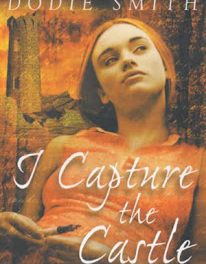My
Take:
I
picked up this book because of its high ratings and Pulitzer Prize (2013) status. It’s been hailed by many critics as a ‘tour
de force,’ and I can’t argue. It’s epic
in scope, content, and literary genius — I was mesmerized and astounded
in turn with Adam Johnson’s brilliant and insightful writing.
However
(and this could be a game changer for some), I wasn’t prepared for the emotional,
gut-wrenching ‘tour de force’ the novel delivers by frequently and graphically describing
human suffering, violence and torture. I
came very close to abandoning the book altogether.
But in
the end, it was that very human suffering that compelled me to finish. Pak Jun
Do’s story, combined with the larger story of North Korea, are essentially
about humanity. And lack thereof.
Taking away someone’s humanity, giving it
back; giving away one’s own humanity, getting it back. And how love can be used for both.
‘The Orphan Master’s Son’ can be a life-changer. It’s that
good. But I’m giving it 4 stars (instead of 5) because it’s not worth reading unless you’re absolutely sure you have a
strong stomach.
Tip: I would suggest reading the author’s Q&A session at the back before reading the book itself. It’s very helpful to understand the background
information on the author and his experiences with and in North Korea before
you read the story itself. It contains a
few spoilers, but they won’t register much until you’ve read the book (at least that was my experience).
Goodreads Summary:
An epic
novel and a thrilling literary discovery, The Orphan Master’s Son follows a
young man’s journey through the icy waters, dark tunnels, and eerie spy
chambers of the world’s most mysterious dictatorship, North Korea.
Pak Jun
Do is the haunted son of a lost mother—a singer “stolen” to Pyongyang—and an
influential father who runs Long Tomorrows, a work camp for orphans. There the
boy is given his first taste of power, picking which orphans eat first and
which will be lent out for manual labor. Recognized for his loyalty and keen
instincts, Jun Do comes to the attention of superiors in the state, rises in
the ranks, and starts on a road from which there will be no return.
Considering
himself “a humble citizen of the greatest nation in the world,” Jun Do becomes
a professional kidnapper who must navigate the shifting rules, arbitrary
violence, and baffling demands of his Korean overlords in order to stay alive.
Driven to the absolute limit of what any human being could endure, he boldly
takes on the treacherous role of rival to Kim Jong Il in an attempt to save the
woman he loves, Sun Moon, a legendary actress “so pure, she didn’t know what
starving people looked like.”
Part
breathless thriller, part story of innocence lost, part story of romantic love,
The Orphan Master’s Son is also a riveting portrait of a world heretofore
hidden from view: a North Korea rife with hunger, corruption, and casual
cruelty but also camaraderie, stolen moments of beauty, and love. A towering literary
achievement, The Orphan Master’s Son ushers Adam Johnson into the small group
of today’s greatest writers.











